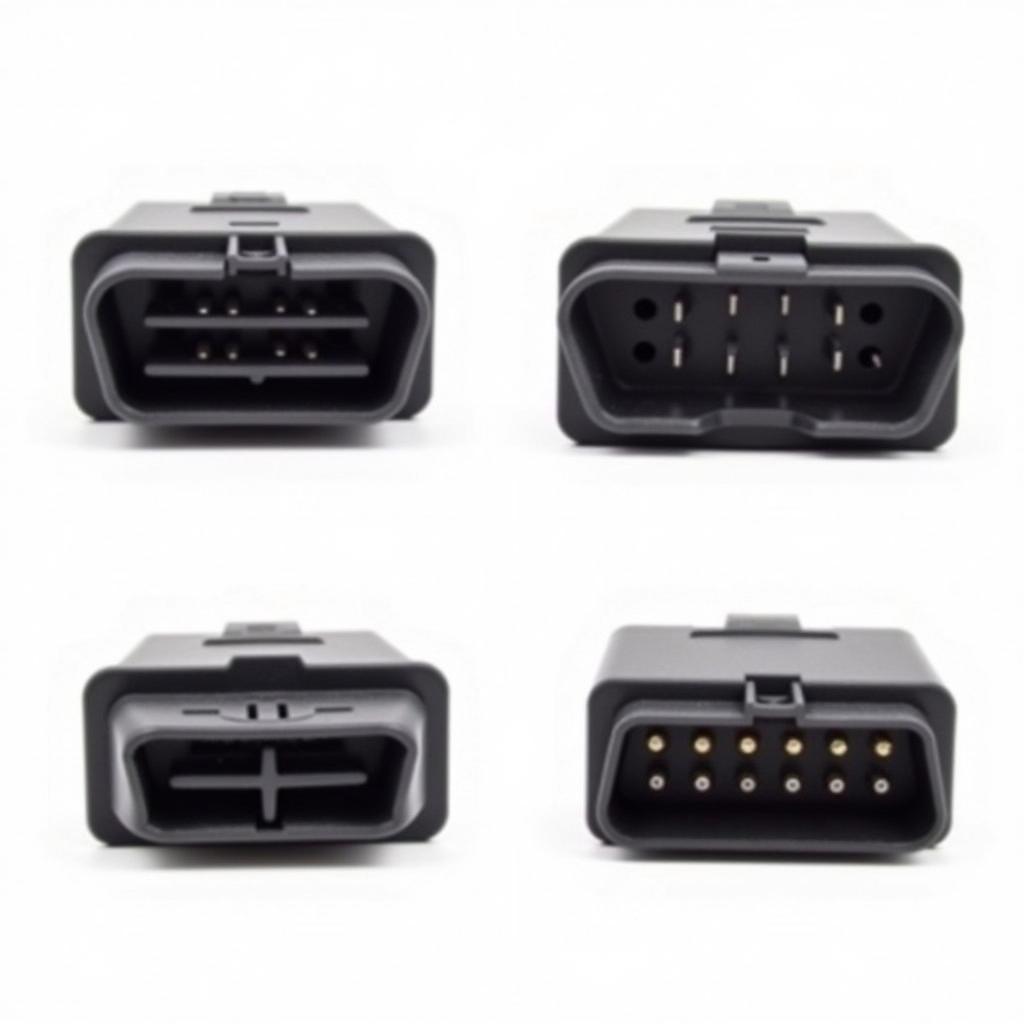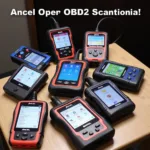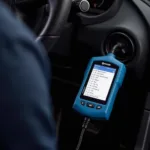Swapping an OBD2 engine into your older OBD1 Honda Civic? You’ll likely need an OBD2 to OBD1 conversion harness. This guide covers the essentials of these harnesses, helping you choose the right one for your project.
Understanding OBD Systems and Why Conversions are Necessary
OBD stands for On-Board Diagnostics. It refers to the system in your vehicle that monitors emissions, engine performance, and other crucial functions. The OBD system alerts you to problems through the check engine light and provides diagnostic trouble codes (DTCs) for troubleshooting.
Honda Civics, like many vehicles, transitioned from OBD1 to the more sophisticated OBD2 system in the mid-1990s. This change, however, often complicates engine swaps.
Let’s say you want to put a newer, more powerful OBD2 engine into your older OBD1 Civic. The different OBD systems can create compatibility issues between the engine’s electronics and your car’s electrical system. This is where the OBD2 to OBD1 conversion harness comes into play.
What is an OBD2 to OBD1 Conversion Harness?
An OBD2 to OBD1 conversion harness acts as a bridge, allowing your OBD1 Civic’s electrical system to communicate seamlessly with the engine control unit (ECU) of an OBD2 engine. This harness essentially “translates” the signals between the two systems, ensuring proper engine function.
Why Do I Need a Conversion Harness?
Without the correct conversion harness, your OBD2 engine won’t receive the proper signals from your OBD1 Civic. This can lead to a range of problems, including:
- Engine starting issues: The engine may crank but not start.
- Rough idling and poor performance: The engine might run erratically due to incorrect fuel and ignition timing.
- Check engine light: The ECU might detect a problem and trigger the check engine light.
- Sensor malfunctions: Sensors may not communicate accurately with the ECU.
Choosing the Right OBD2 to OBD1 Conversion Harness for Your Civic
Selecting the right harness is crucial for a successful engine swap. Here are factors to consider:
- Civic Model and Year: Specify the exact year and trim level of your Civic.
- Engine Code: Have the engine code of your OBD2 engine on hand (e.g., D16Y8, B16A2).
- Harness Features: Some harnesses offer additional features, such as provisions for VTEC (Variable Valve Timing and Lift Electronic Control) or knock sensors.
“Always purchase a conversion harness specifically designed for your Civic model and engine combination,” says automotive engineer, David Thompson. “Using a generic harness can lead to compatibility issues.”
Installing the Conversion Harness
While the installation process varies depending on the specific harness and your Civic’s model, it generally involves connecting the harness to the engine’s ECU, the vehicle’s wiring harness, and various sensors.
Important: Unless you have experience with automotive wiring, it’s recommended to have the conversion harness installed by a qualified mechanic.
OBD2 to OBD1 Conversion Harness: A Worthwhile Investment
An OBD2 to OBD1 conversion harness is a small investment compared to the cost of an engine swap gone wrong. By ensuring compatibility and proper engine function, the harness simplifies the swap process and helps you enjoy the performance benefits of a newer engine in your older Honda Civic.
If you have questions about finding the right conversion harness for your project, don’t hesitate to reach out to us. Our team is here to help you every step of the way.
Frequently Asked Questions
1. Can I make my own OBD2 to OBD1 conversion harness?
While it’s technically possible, it’s not recommended unless you have advanced automotive wiring knowledge. An improperly wired harness can cause significant damage to your engine and electrical system.
2. How much does an OBD2 to OBD1 conversion harness cost?
Prices vary depending on features and brand, but expect to pay between [Price Range] for a quality harness.
3. Will I need any other parts for the conversion?
Depending on the specific engine swap, you may need additional components like engine mounts, axles, or fuel system modifications.
4. Can I revert back to my OBD1 engine later?
Yes, the conversion is reversible. You’ll need to reinstall the original OBD1 engine harness and ECU.
5. Where can I buy an OBD2 to OBD1 conversion harness?
Reputable online retailers and auto parts stores specializing in Honda performance parts are good places to start.
Need help with your OBD2 to OBD1 conversion? Contact us via WhatsApp at +1(641)206-8880 or email us at [email protected]. Our 24/7 customer support team is always ready to assist you!


